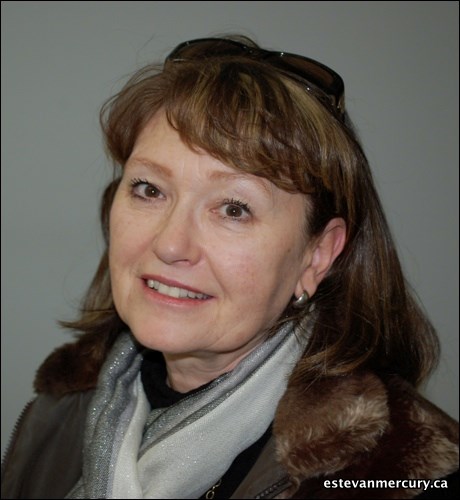She's out spreading the gospel of grants.
Sharon Rodenbush, communications manager for the Community Initiatives Fund in Saskatchewan, was in the southeast area of the province Jan. 3 and 4 providing information to a number of news outlets regarding the Community Initiatives Fund and the shorter termed Community Vitality Program.
The two are supported by profits gleaned from the Regina and Moose Jaw casinos with the ensuing grants being made available to any provincial non-profit organization that can fill out an application and make a case for their project(s).
"The flagship program is the Community Initiative Fund.There is up to $50,000 available for any particular project that can be matched by the community or organization making the application. That matching value can come in the form of cash or volunteer time and materials," Rodenbush said.
"Right now though, we're also pushing the Community Vitality Program because it is a short-term project that focuses on capital projects, three years to be exact, and 2012 is the final year, so we have just two more deadlines left for it that those are April and October," she added.
The guidelines for applying and questions surrounding eligibility can be answered online at: www.cifsask.org then follow the directions.
"I'm going around simply getting the word out directly to the news outlets that there are grants available. The adjudication of the application is made by 10 co-ordinators who determine whether or not a grant fits the application and the application's eligibility at the start. Their recommendations are then taken to the board of directors. There are eight of them appointed by the government's ministry of Tourism, Culture and Sports and they peruse a number of factors to bring balance to the awards ... things such as geographical balance, gender equalities, things like that and then the grants go out to those who are successful," Rodenbush said.
The money may be used for any number of things. Communities may find themselves with a need to perform some repairs on infrastructure such as a new roof for a community building. It might be a capital grant for a new facility or money needed for a milestone event such as a community anniversary or celebration.
"Who gets these grants is published on the website and in the annual report," Rodenbush said.
The only stipulation accompanying the money is that the CIF receives recognition for their end of the contribution and that after the project is finished, a final report is filed which will trigger the final payment for the project or event.
Last year the Community Initiatives Fund grants amounted to about $3.8 million while the vitality programs received $2.6 million.
"The CIF is becoming more and more arm's-length from government and the ministry. They are a good tool to leverage more funds from the community supporters since the costs are shared equally," Rodenbush said. "I'm doing a bit of a pilot project of investigation into how the program works and I am seeing that some areas need more exposure to the CIF. That's not necessarily the case in the southeast, but this is where I have started."
The CIF is a bare-bones operation for one that distributes over $6 million annually with just three full-time employees to work with the volunteer board and co-ordinators. Estevan Councillor Lynn Chipley is a former board member.
"The CIF started in 1994, but didn't actually get into operational mode until 1995 and the process of making it an arm's length agency, less reliant on government directions, began about two years ago. The board has since acknowledged that there needed to be more awareness of the grants and the program around the province, so that's what we are doing," said Rodenbush who noted that the fund's executive director is the hard-working Tracey Mann who has directed the show for a few years now.
In summary, Rodenbush said the CIF flagship program issues grants to help improve the health and well-being of vulnerable children, youth and families in Saskatchewan through a number of grant initiatives. The Community Vitality Program provides the grants for small capital projects and for community pride events.
There are physical activity grants co-ordinated with partners, grants to help support problem gambling and gambling prevention and treatment programs, urban Aboriginal Community Grant Programs in 14 centres and there are even exhibition associations that have received mitigation payments to offset loss of former casino profits.
Eligibility focuses on non-profit organizations and agencies involved in the community. Once an application is made, its acceptance or rejection will be made known within six to eight weeks and the funds may be dispersed within a period of one to two years.
"It's out there, it's a great grant program and we just want people to be aware of what it can do for them as they invest in their communities," Rodenbush said in conclusion.




